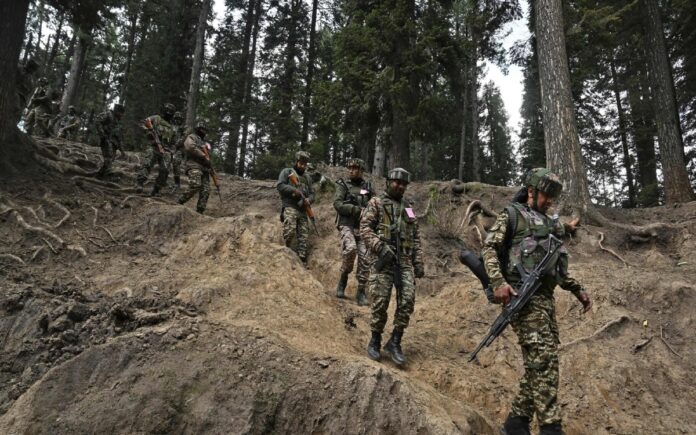Islamabad/New Delhi: Pakistan’s military has accused India of orchestrating a deadly vehicle blast that killed seven of its soldiers in Balochistan, escalating tensions between the two nuclear-armed neighbors already on edge after a recent attack in Indian-administered Kashmir.
The explosion, caused by an improvised explosive device (IED), struck a military vehicle in the volatile southwestern province, where the Baloch Liberation Army (BLA) has been active for years. Pakistan’s armed forces described the BLA as an “Indian proxy” and held New Delhi responsible for the attack.
This comes amid heightened strain between the two countries following the April 22 assault in Indian Kashmir, which targeted Hindu tourists and left 26 people dead. India has accused Pakistan of involvement, alleging that two of the three suspected attackers were Pakistani nationals. Islamabad has firmly denied the allegations but reiterated its readiness to defend its sovereignty.
The Balochistan region, which borders Iran and Afghanistan, is rich in minerals and is home to key infrastructure projects under China’s Belt and Road Initiative, including the strategic Gwadar port. Insurgent groups like the BLA have long opposed the central government’s control over the region, often targeting security forces and foreign interests.
India’s Ministry of External Affairs did not immediately respond to Pakistan’s accusation regarding the latest blast.
As the diplomatic row intensifies, both countries have taken reciprocal actions—suspending trade, curbing water-sharing treaties, closing airspace, and downsizing diplomatic missions.
Amid fears of further escalation, U.N. Secretary-General António Guterres called for restraint and a return to diplomacy. “Now is the time for maximum restraint, and stepping back from the brink,” he said. The United Nations Security Council was briefed on the situation, with Pakistan’s foreign ministry citing intelligence of an “imminent threat” of Indian military action.
“They called for dialogue and diplomacy to diffuse tension and avoid military confrontation … and to peacefully resolve issues,” the foreign ministry added in a statement.
Tensions have also played out militarily. Pakistan conducted two missile tests within three days, while India announced plans to carry out civil defence drills across several states, involving air raid sirens and evacuation procedures.
Also Read | India Gears Up for Nationwide Civil Defence Drill on May 7 Amid Rising Tensions with Pakistan
In response to the situation, Pakistan’s Prime Minister Shehbaz Sharif, joined by the deputy prime minister, top ministers, and military leaders, visited the headquarters of the Inter-Services Intelligence (ISI) agency on Tuesday.
India, though not a current member of the U.N. Security Council, has reportedly held consultations with several Council members. According to an Indian source familiar with those discussions, “many members expressed concern that Pakistan’s missile tests and nuclear rhetoric were ‘escalatory’ factors.”
“Pakistan’s efforts to internationalise the situation also failed,” said the source, speaking on condition of anonymity. “They were advised to sort out the issues bilaterally with India.”
Also Read | Record U.S. Trade Deficit in March Driven by Pre-Tariff Import Surge
The long-standing Kashmir conflict remains at the heart of the rivalry. Muslim-majority Kashmir is claimed in its entirety by both India and Pakistan, though each controls only part of it. The two countries have fought two wars over the region, and New Delhi accuses Islamabad of supporting a decades-long insurgency that has significantly declined in recent years.
Pakistan maintains that it offers only diplomatic and moral support for the Kashmiri people’s right to self-determination.
Meanwhile, India has rejected a recent statement by the Organisation of Islamic Cooperation (OIC), which reaffirmed its “support for the Jammu and Kashmir question.”



